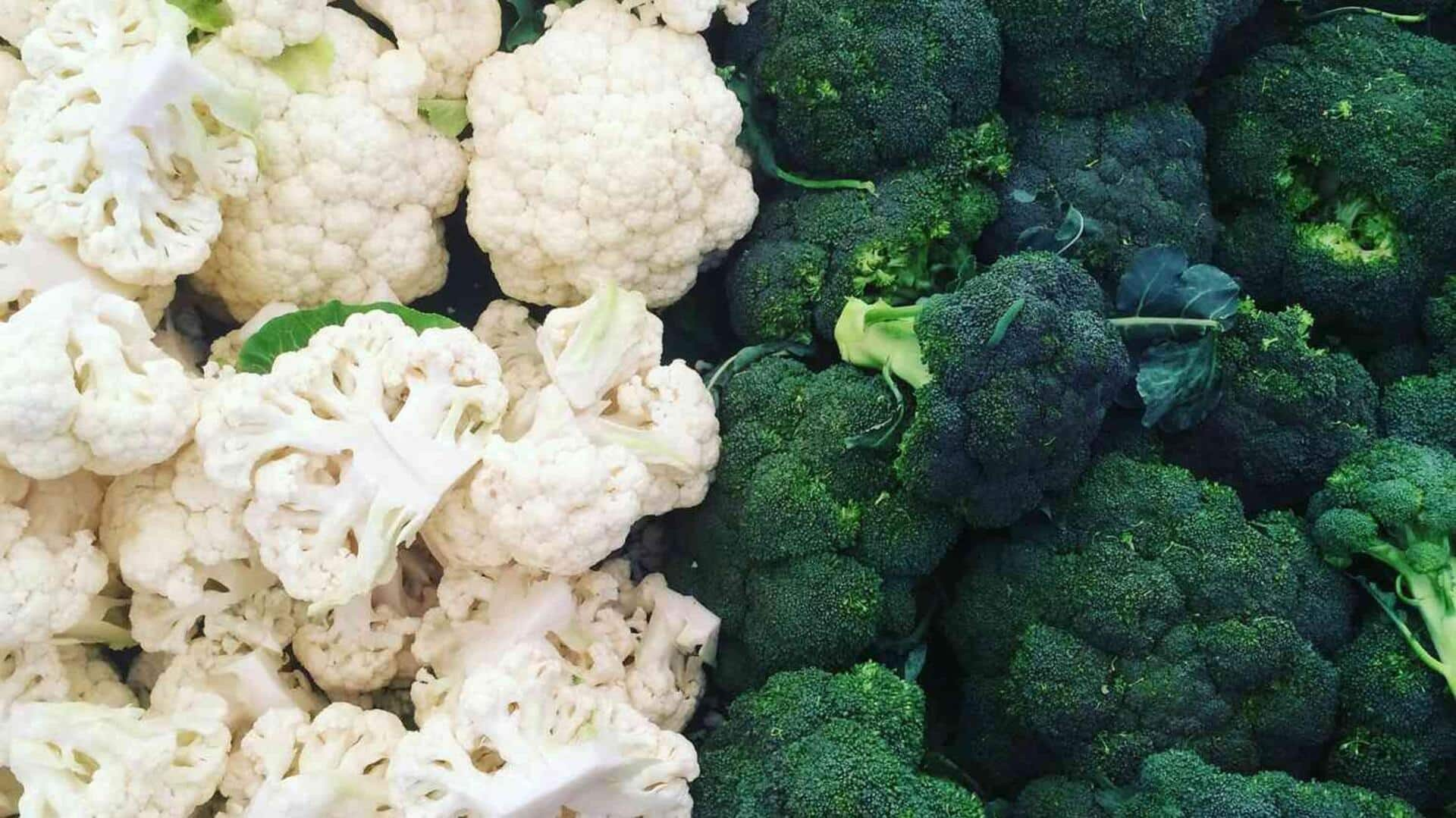
Broccoli v/s cauliflower: Which is more beneficial for your health?
What's the story
Broccoli and cauliflower are two of the most popular cruciferous vegetables, both of which are known for their health benefits. They are often compared for their nutritional profiles and health benefits. While both are packed with essential nutrients, they have their own unique benefits that make them stand out. Here, we look at the nutritional differences between broccoli and cauliflower, and how they can benefit your health.
#1
Vitamin content comparison
Broccoli is loaded with vitamin C, giving you more than 100% of the daily recommended intake in a single serving. It also has vitamin K and vitamin A. Cauliflower, on the other hand, has a good amount of vitamin C but less than broccoli. However, it does provide a decent amount of vitamin K and folate. The difference in vitamin content makes broccoli better for immune support, while cauliflower is good for folate intake.
#2
Fiber and digestive health
Both broccoli and cauliflower are high in fiber, which is essential for good digestion. Fiber helps keep bowel movements regular and prevents constipation. Broccoli has slightly more fiber than cauliflower, making it better for those looking to increase their fiber intake. However, both vegetables contribute significantly to daily fiber requirements and promote gut health by feeding good bacteria.
#3
Antioxidant properties
Antioxidants are important for fighting oxidative stress in the body. Broccoli is rich in sulforaphane, an antioxidant that has been studied for its potential anti-cancer properties. Cauliflower also has antioxidants such as indole-3-carbinol, which may offer similar benefits. Including either vegetable in your diet can help fight free radicals, but broccoli may have an edge due to its higher sulforaphane content.
Tip 1
Caloric value considerations
For those watching their calorie intake, both broccoli and cauliflower make excellent low-calorie choices. Broccoli has about 55 calories per cup, while cauliflower has about 25 calories per cup. The difference in caloric value is negligible but may matter if you're on a strict calorie-controlled diet or looking to manage weight effectively without sacrificing nutrition.